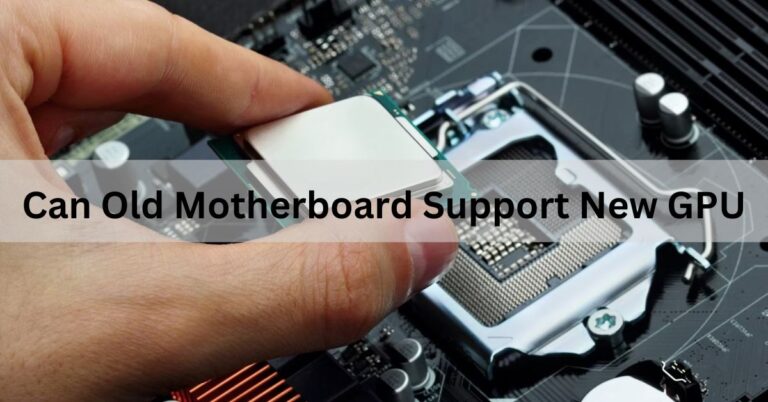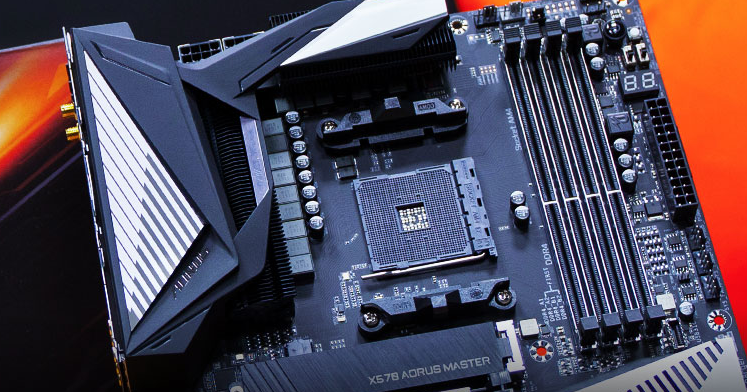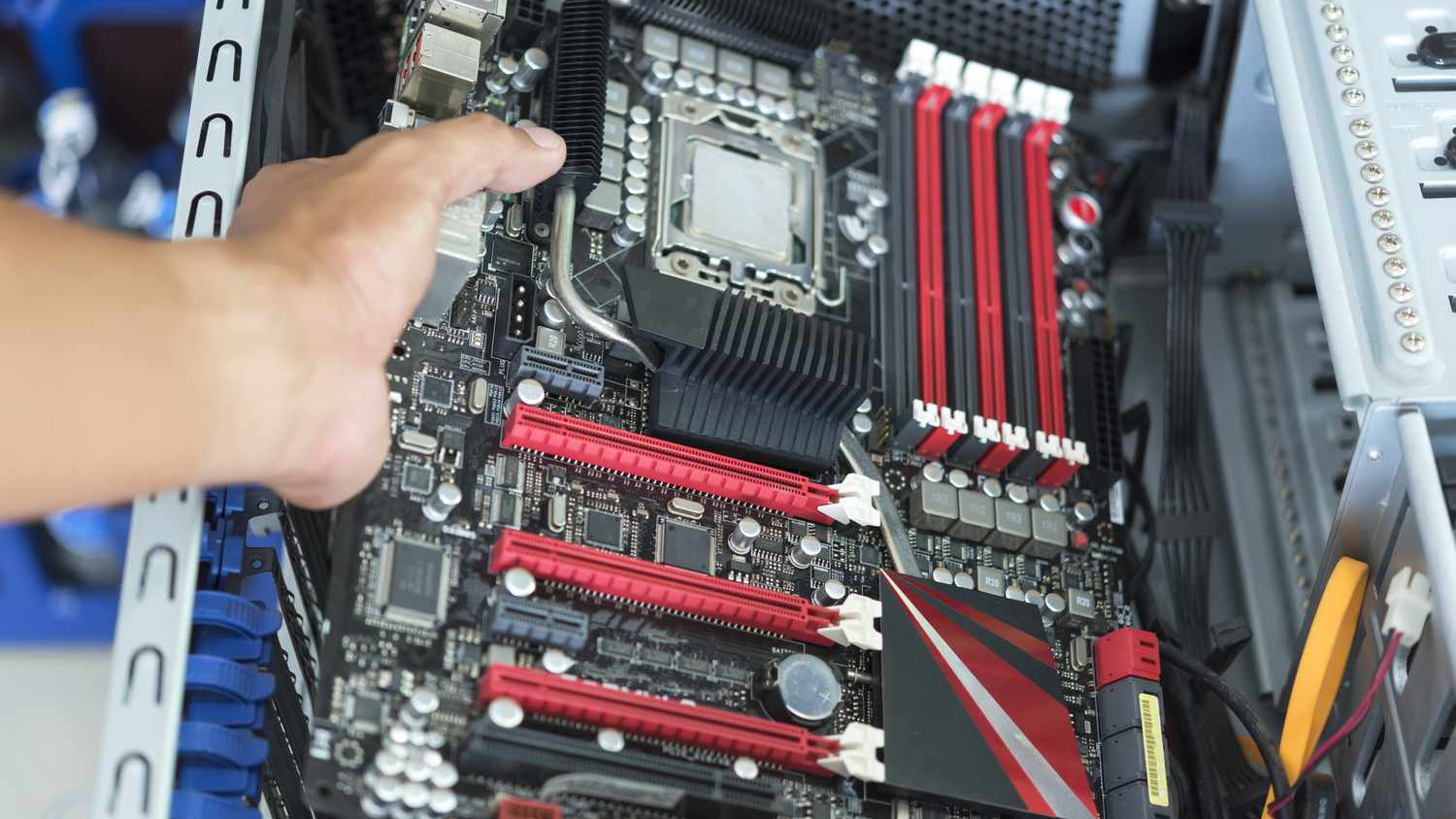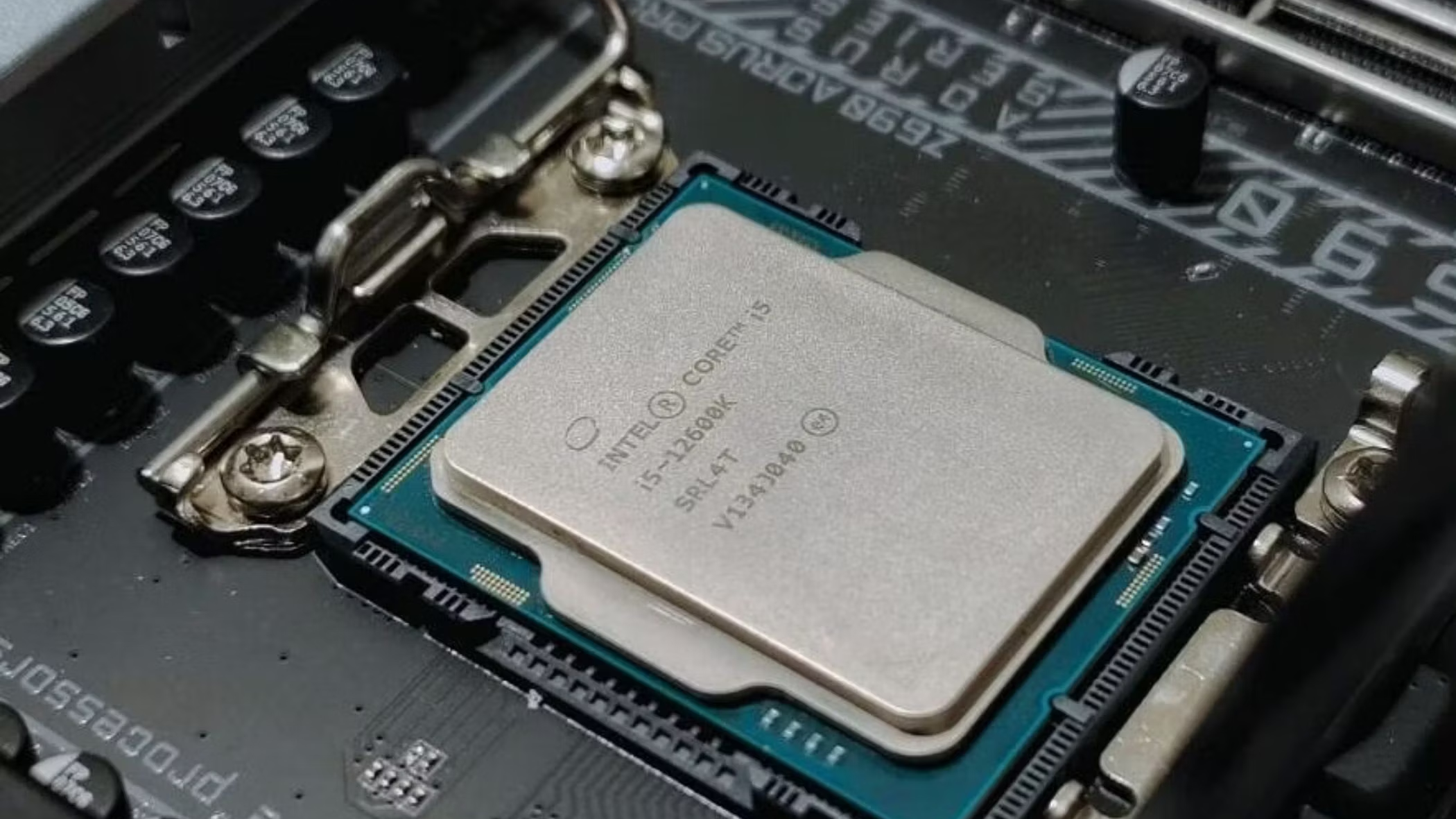
If you’re building or upgrading a PC, one of the questions you might have is whether all fans are compatible with all motherboards. This is an important consideration, as using the wrong type of fan or connector can lead to performance issues or even hardware damage.
“An old motherboard can support a new GPU if it has a compatible PCIe slot. However, you might face performance limits, power supply issues, or BIOS compatibility problems. Always check your motherboard’s specifications before upgrading.”
We’ll explore the different types of fans and motherboards, and how to ensure that your cooling system is compatible with your setup.
Table of Contents
What is a Motherboard?

A motherboard is the main circuit board in a computer. It connects all the components like the CPU, RAM, and storage, allowing them to work together. It’s the central hub that makes your computer function properly.
What is a GPU?
A GPU (Graphics Processing Unit) is a computer component that handles the processing of graphics and images. It’s essential for gaming, video editing, and rendering tasks, helping to create smooth and detailed visuals on your screen.
GPU Compatibility with Old Motherboards
GPU compatibility with old motherboards depends on the connection type and BIOS support. Older motherboards may not support newer GPUs, so check the PCIe slot type and power requirements to ensure proper compatibility before upgrading.
Compatibility Factors
Here’s the list of compatibility factors:
- Size
- Connector type
- Power requirements
These factors help determine if a component will work with your motherboard or other hardware.
What if GPU is not compatible with motherboard?
If your GPU isn’t compatible with the motherboard, it won’t fit or work properly. You may need to get a different GPU or motherboard that matches. Check the specifications and slots to ensure they are compatible.
How Can Old Motherboard Support New GPU?
An old motherboard can support a new GPU if it has the right PCIe slot and enough power supply. Check the slot type and ensure your power supply meets the GPU’s requirements for proper compatibility and performance.
Can a Graphics Card Be Too Powerful For a Motherboard?
Yes, a graphics card can be too powerful for a motherboard if the motherboard cannot support its power or performance needs. Always check the motherboard’s specifications to ensure it can handle the graphics card you want to use.
Can a Graphics Card Damage a Motherboard?
A graphics card can potentially damage a motherboard if it is improperly installed, or if there are issues like electrical faults or overheating. Proper installation and ensuring good cooling can help prevent such problems.
New GPU on A Very Old Motherboard Will It Run?
A new GPU may not run well on an old motherboard. The motherboard might not support the latest GPU features or have the right slots. Check compatibility and consider upgrading the motherboard for best performance with a new GPU.
Can an old PC handle a new graphics card?

An old PC might not handle a new graphics card if it lacks the right connectors or power supply. Check your PC’s specs and make sure it supports the new card’s requirements for proper installation and performance.
Does the motherboard matter for GPU?
Yes, the motherboard matters for a GPU. It needs the right slot, usually PCIe, to fit and work properly. Make sure your motherboard supports the GPU you want to use and has enough space and power.
Can I put any graphics card in a DDR2 motherboard?
You cannot use any graphics card with a DDR2 motherboard. The motherboard needs to have a compatible PCIe slot for modern graphics cards. Check your motherboard’s specifications to ensure it supports the graphics card you want to use.
How do I know if my motherboard can handle a new graphics card?
To check if your motherboard can handle a new graphics card, make sure the card fits in your case, check the power supply, and confirm the motherboard has the right slot for the card.
Can an old motherboard damage a new GPU?
An old motherboard won’t usually damage a new GPU. However, if the motherboard’s power or compatibility is outdated, it might not support the new GPU properly. Always check if your motherboard meets the GPU’s requirements.
Can Your Old Motherboard Handle The Latest GPUs? – A Comparison!
Older motherboards might struggle with the newest GPUs due to outdated slots or power limits. Check your motherboard’s specifications to ensure it supports the new graphics card for proper performance. Compatibility is key for smooth operation.
Can a new GPU run on an old motherboard?
Yes, a new GPU can work with an old motherboard if the motherboard has the right slot (PCIe) and enough power. Check the motherboard’s specifications to ensure compatibility with the new GPU.
Do I need a new motherboard for a new GPU?
Not always. You might need a new motherboard for a new GPU if your current one doesn’t fit or support the GPU. Check if your motherboard has the right slot and power for the new GPU.
Will old motherboard work with new GPU?

Yes, an old motherboard can work with a new GPU, but check compatibility first. Ensure the motherboard has the right slot (like PCIe) and that the power supply can handle the new GPU’s needs.
Can my motherboard support new graphics card?
If your motherboard supports a new graphics card, verify the card’s size, power needs, and slot type. Make sure your motherboard has the correct slot and enough power to handle the new card.
Can old motherboard support new gpu for gaming
An old motherboard might support a new GPU for gaming if it has the right slot and enough power. Check if the GPU fits the motherboard’s slot and if the power supply can handle the new card.
Can I use old motherboard for gaming
Yes, you can use an old motherboard for gaming, but it may not support the latest games or high-end graphics cards. Check if it meets the game’s requirements and if it has the right connections for new hardware.
Is there any GPU card limitation for an old motherboard?
Yes, old motherboards might have GPU card limitations. They may not support newer, more powerful graphics cards or might have outdated slots. Check your motherboard’s specifications to ensure compatibility with the GPU you want to use.
How do you test a motherboard for compatibility with a new graphics card?
To test if your motherboard is compatible with a new graphics card, check the PCIe slot type and size, ensure there’s enough physical space, and confirm the power supply can handle the card’s needs. Check the motherboard’s manual for specific details.
Is Old motherboard not detecting new GPU
If your old motherboard isn’t detecting a new GPU, it might not be compatible or need a BIOS update. Check if the motherboard supports the GPU and ensure all connections are secure.
How do I know if my GPU is not compatible for motherboad?
If your GPU is not compatible with your motherboard, look for the correct slot type and size on the motherboard. Check if the GPU fits in the slot and if the motherboard supports the GPU’s requirements.
RTX 3060 on old motherboard
To use an RTX 3060 with an old motherboard, check if the board has the right slot (PCIe x16) and enough power supply. Also, make sure the motherboard BIOS is updated to avoid compatibility issues.
Will a RTX 3060 work on old motherboard?

Yes, an RTX 3060 can work on an old motherboard if it has a PCIe x16 slot. Make sure your power supply and case are also compatible with the new GPU for it to work properly.Yes, an RTX 3060 can work on an old motherboard if it has a PCIe x16 slot. Make sure your power supply and case are also compatible with the new GPU for it to work properly.
FAQS:
1. Can an old motherboard support a new GPU?
Yes, an old motherboard can support a new GPU if it has a compatible PCIe x16 slot.
2. What do I need to check before installing a new GPU on an old motherboard?
Yes, check that your old motherboard has a PCIe x16 slot, and ensure your power supply and case are compatible.
3. Will a new GPU work with an older PCIe slot?
No, a new GPU may not work properly with older PCIe slots like PCIe x8 or PCIe x4, as they may limit the GPU’s performance.
4. Can I upgrade my GPU without changing my motherboard?
Yes, you can upgrade your GPU without changing your motherboard if it has the correct PCIe slot and your power supply meets the GPU’s requirements.
5. What issues might I face when using a new GPU with an old motherboard?
Yes, you might face issues like compatibility with older PCIe slots, insufficient power supply, and limited space in your case.
Conclusion:
In conclusion, upgrading to a new GPU with an old motherboard is possible if the motherboard has the right PCIe slot and enough power. Always check for compatibility, including slot type, power needs, and physical space. Proper planning will help ensure smooth performance and avoid potential issues.